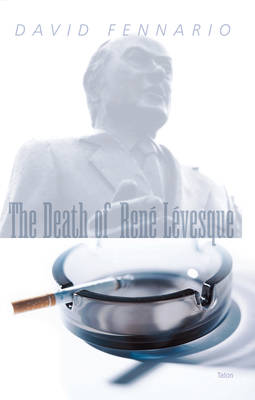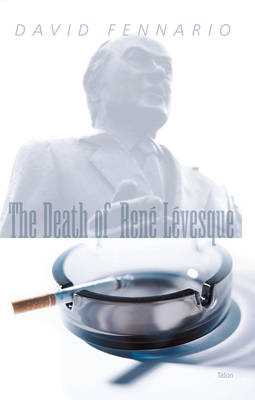
- Retrait gratuit dans votre magasin Club
- 7.000.000 titres dans notre catalogue
- Payer en toute sécurité
- Toujours un magasin près de chez vous
- Retrait gratuit dans votre magasin Club
- 7.000.0000 titres dans notre catalogue
- Payer en toute sécurité
- Toujours un magasin près de chez vous
Description
In taking on "The Matter of Québec," David Fennario provides audiences and readers with an abiding critique of the notion that history is created around "great causes" by "great men." Given the recent reversal of fortune delivered to the tempestuous sound and fury of the Québec separatist movement, The Death of René Lévesque is, in retrospect, more than an astonishingly profound and prophetic political document.
Showcasing the surprising theatrical range and virtuosity of the author of Canada's first bilingual--though definitely not bicultural--working-class hit, Balconville, The Death of René Lévesque dramatizes the rise and fall of Canada's most tragic public figure of the 20th century. Fennario's deft and subtle characterization of the father of the Parti Québecois, his re-telling of the compromising political realities which formed both the movement and the party as Lévesque created it, and the gradual revelation of the fatal flaw which began to undermine both the man and his dream of a new republic, proceed here with a stately, devastating inevitability which recall the masterful tragedies of Euripides and Shakespeare. The Death of René Lévesque presents its audience with the powerful and cathartic stillbirth of a nation, stripped of both pity and fear, as only an Anglophone Québec separatist could possibly imagine it. Cast of two women and four men.Spécifications
Parties prenantes
- Auteur(s) :
- Editeur:
Contenu
- Nombre de pages :
- 72
- Langue:
- Anglais
Caractéristiques
- EAN:
- 9780889224803
- Date de parution :
- 28-10-03
- Format:
- Livre broché
- Format numérique:
- Trade paperback (VS)
- Dimensions :
- 156 mm x 202 mm
- Poids :
- 95 g

Les avis
Nous publions uniquement les avis qui respectent les conditions requises. Consultez nos conditions pour les avis.






